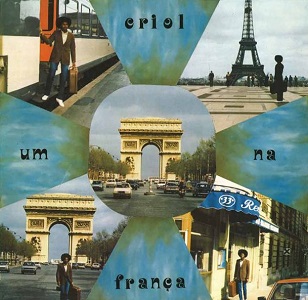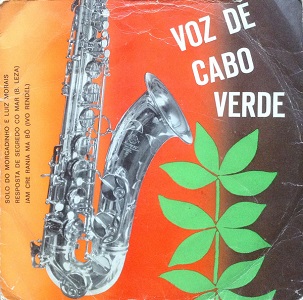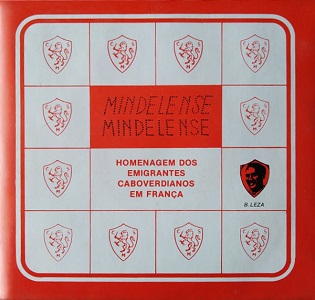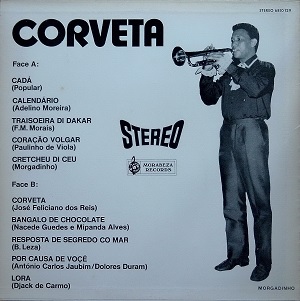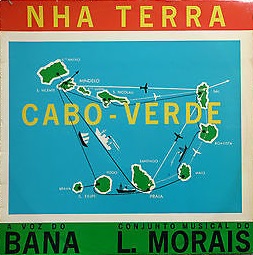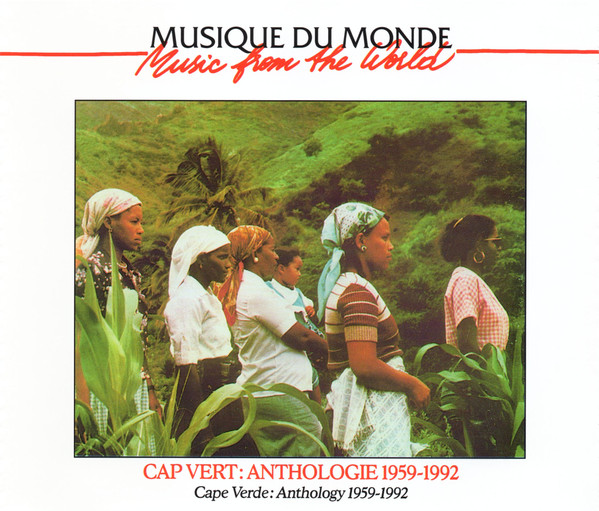Morgadinho
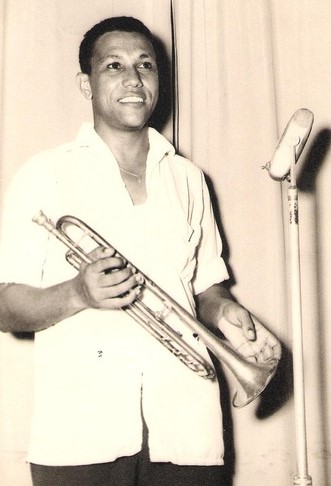
Joaquim Soares de Almeida
Praia Branca, São Nicolau, 1931
Instrumentalist (winds, bass), singer, songwriter
A member of Voz de Cabo Verde in its original formation and again in the 2000s, Morgadinho has released one solo album. He has also collaborated with various artists on recordings and has several compositions to his name.
Living in Mindelo from the age of 2, he studied under conductor José Alves dos Reis alongside Manuel Clarinete, Cesário Duarte and Manuel Tidjena, among others, initially learning trumpet and later the trombone. He was part of the Banda Municipal de São Vicente. After quickly advancing through all levels as an apprentice, he became the head of the band in 1954, but at at that time, he decided to leave, feeling it was “too traditional”. With the rigor of the score, “it was impossible to expand; it was always the same thing” (Cabo Verde & a Música – Dicionário de Personagens).
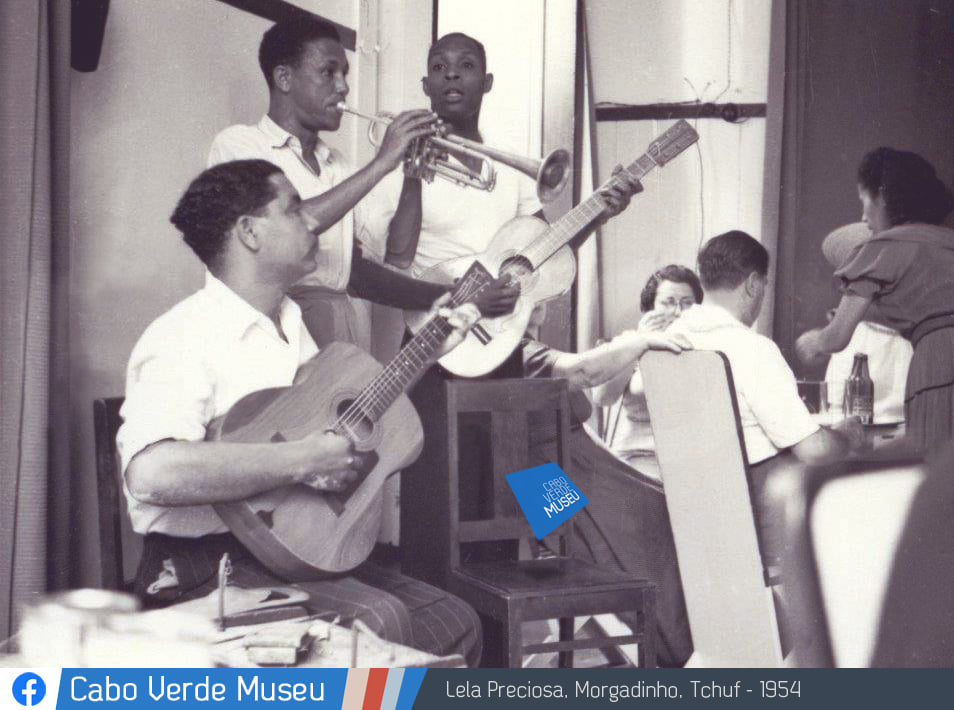
His father was the owner of the legendary Café Royal, where music took place with more freedom than under the baton of conductor Reis. With his head full of melodies, the band began to bore him. In 1955, at the invitation of the owner of Adega Machado, a traditional fado house in Lisbon, he went to Portugal accompanied by Lela Preciosa and Tchufe. For three months, fado alternated with morna, as noted in an article in Latitudes (May 2004).
“I went to the movies a lot; at that time, there were American musicals with Fred Astaire, Gene Kelly, Al Johnson, and Louis Armstrong, from whom I learned a lot. Henry James, good trumpet players… There were also westerns…”
Morgadinho, in Cabo Verde & a Música – Dicionário de Personagens
In 1957, Morgadinho left for Guinea as a basketball player with the Académica team. He took his trumpet with him, recalling, “a musical troupe had also gone, the Marques da Silva and others”. At a party, they heard him play and said: “This guy stays here.” This is how he lived in Bissau until 1963, although he was not working professionally in music; he found employment at the City Hall as an accountant in Public Works and later in the Finance and Accounting department. Music was played almost every weekend at dances. In 1963, after being invited to Senegal to perform at a party at the Foyer des Portugais, he discovered a conservatory in Dakar that charged no fees. “I stayd there; it was no longer convenient for me to return to Guinea because the war had started, and things were complicated. I was also afraid of forgetting what I had learned as a musician”, he explains in Cabo Verde & a Música – Dicionário de Personagens.
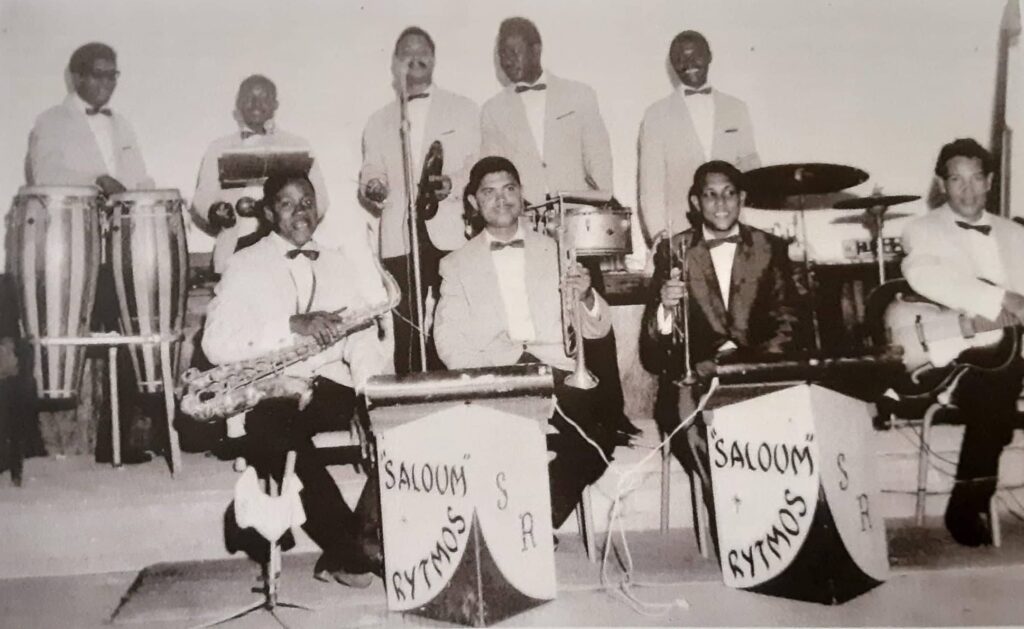
In Senegal, he became a professional. “First, I started at a nightclub called Ferlo, with Toi Ramos. Then they opened Saloum, and we called Luís Morais, who was playing at Miami, and he joined us. It was three years in Dakar, when Bana recorded his first 45 RPM there”, in which Morgadinho played.
In 1966, they all moved to Rotterdam, following the call of Frank Cavaquinho, who proposed that they form a group. “There were many seafaring Cape Verdeans in the Netherlands due to the merchant navy, and as Cape Verdeas love music, they went to listen to good groups (at the time, italians predominated). So, they felt great pride knowing that a group from Cape Verde was appearing to showcase what we knew”, he declares.
With Bana’s departure, they were left without a singer, and Morgadinho has to cover this gap, in addition to learning to play bass, “so that we could fill the holes, as we didn’t have na organista either”. When a trumpet was needed, he passed the bass to Jean da Lomba. Later Djosinha joined, but practically everyone left the group in 1970.
Since 1972, Morgadinho has lived in Paris. He worked as an administrative employee at a funeral company and retired in 1979. However, music has always been a part of his life. In the 1970s, alongside Toi Ramos, who also lived in Paris, he participated in Les Flammes, with Mário Pop as the vocalist. The grouo recorded four solo LPs, and Morgadinho released Um Criol na França 1981. He accompanied other artists, appearing on two of Tazinho’s albums recorded in the 1960s and on Jorge Sousa’s album in 1999, contributing to the arrangements as well.
As a composer, one of his most notable themes features the voice of Cesária Évora, which became her nickname, “Cize”, even though the song was not composed specifically for her. His compositions extend beyond romantic love; he keenly observed political, economic, and social issues. For example,“Queda d’spy”, adresses the Portuguese general António Spínola; “Pitrol”, is a koladera about the rise in oil prices in the 1970s, and “D’stine d’nos criola”, critiques koladeras that negatively portray women in Cape Verde. In his youth, before leaving São Vicente, he also composed sambas and marches for Carnival and later dedicated a composition to the Mindelense club.
In 2019, Morgadinho was honored by the president of the Republic of Cape Verde, Carlos Fonseca, with the first degree of the Order of the Dragoeiro.
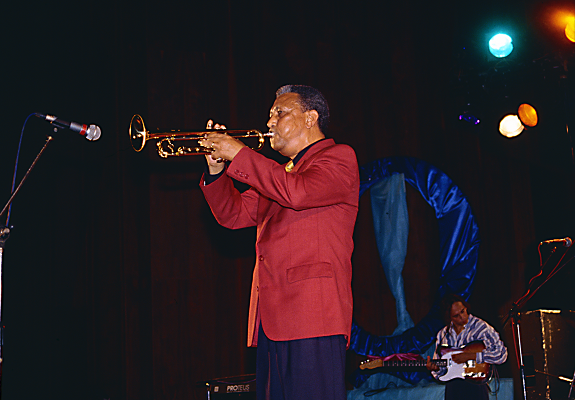
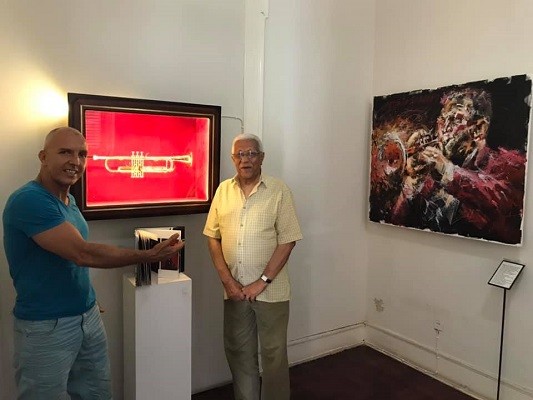
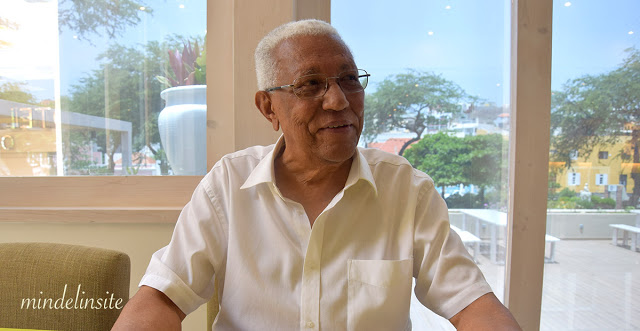
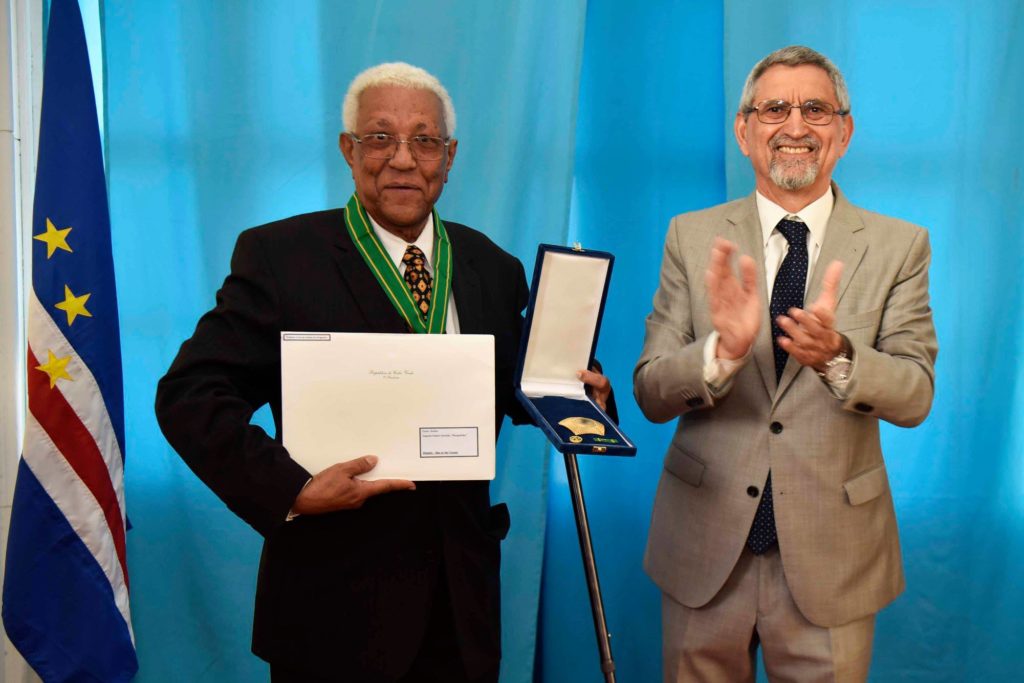
Discography
- Morgadinho companhode ma Voz de Cabo Verde, EP, MR, Rotterdam, [dec. 1960].
- Um criol na França, LP, AP, Paris, 1981.
- Mindelense! Mindelense!, EP, Luiz Silva, Paris, 1983.
Trumpet solos on Voz de Cabo Verde:
- “Lora”, on the EP Voz de Cabo Verde, [dec. 1960], and in the compilation Nha terra Cabo Verde, [dec. 1990].
- “Resposta di segredo cu mar”, EP Voz de Cabo Verde, [dec. 1960], and in the compilations Cap Vert: Anthologie 1959-1992, 1993, and Nha terra Cabo Verde, [dec. 1990].
- “Traiçoeira de Dacar”, EP Ragoce d’manhe, [dec. 1960].
- “Bem qu’el lorgue” and “Nova coladera”, EP Nova coladera, [dec. 1960].
Vocal participation in:
- “Falame verdade grinhacim”, Voz de Cabo Verde (I), EP Agora e abol, [dec. 1960].
- CD Festa e tradição, 1991 (various artists).
